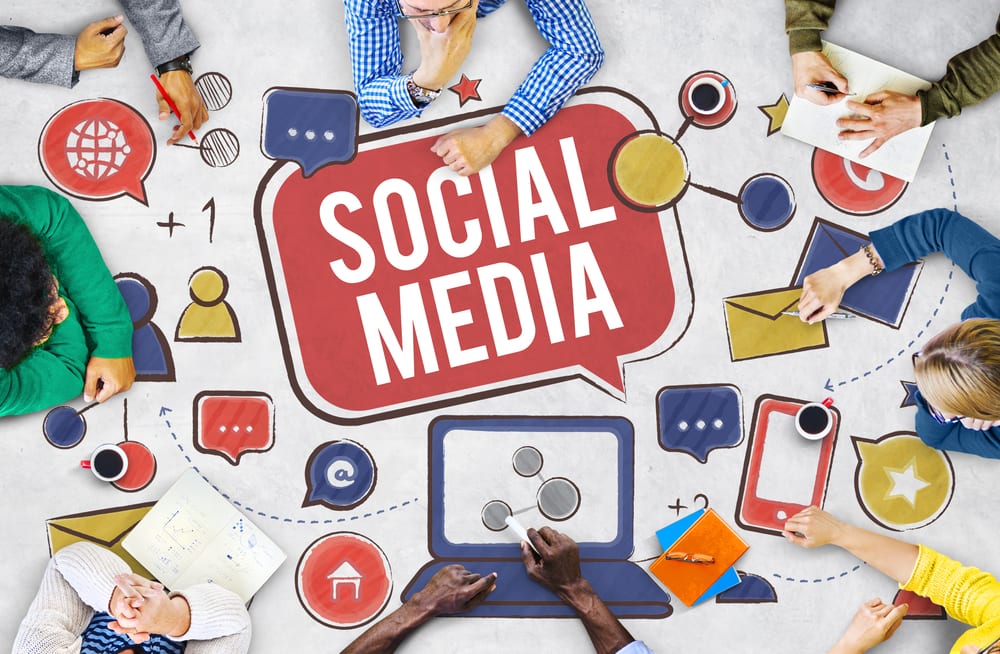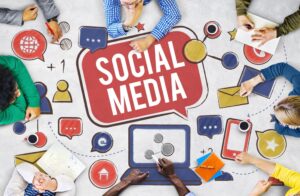As social media continues to shape the landscape of communication and connectivity, its influence on academic performance has become a subject of significant interest. This blog post aims to explore the nuanced relationship between social media usage and academic success. From positive effects that foster collaboration to potential distractions that hinder productivity, let’s navigate the complexities of social media’s impact on students’ academic journeys.
1. Positive Effects of Social Media on Academic Performance
a. Enhanced Communication and Collaboration
- Virtual Study Groups: Social media platforms provide spaces for students to form virtual study groups, fostering collaborative learning and knowledge-sharing.
- Global Networking: Connecting with peers worldwide enables students to exchange ideas, access diverse perspectives, and engage in cross-cultural learning experiences.
b. Access to Educational Resources
- Educational Communities: Social media hosts communities dedicated to specific academic subjects, where students can access additional learning resources, discuss topics, and seek help.
- Quick Information Sharing: Platforms like Twitter and Facebook facilitate the rapid dissemination of educational content, keeping students informed about the latest research and developments in their fields.
c. Professional Networking Opportunities
- LinkedIn and Career Development: Social media platforms, particularly LinkedIn, offer students a platform to build professional networks, discover career opportunities, and showcase their academic achievements.
- Industry Insights: Following industry leaders and participating in relevant discussions on social media can provide students with valuable insights into their chosen fields.
d. Digital Literacy and Online Research Skills
- Information Evaluation: Engaging with social media requires students to evaluate and discern reliable sources, contributing to the development of critical thinking and digital literacy skills.
- Research Opportunities: Social media platforms serve as conduits for academic research opportunities, connecting students with experts, conferences, and academic events.
2. Negative Effects of Social Media on Academic Performance
a. Online Distractions and Reduced Productivity
- Multitasking Challenges: The constant notifications and updates on social media platforms can contribute to multitasking, which may hinder focus and productivity during study sessions.
- Procrastination: Social media can become a source of procrastination, diverting students’ attention away from academic tasks and assignments.
b. Sleep Disruption and Fatigue
- Late-Night Usage: Excessive use of social media, especially late at night, can lead to sleep disruption and fatigue, negatively impacting students’ cognitive abilities and overall well-being.
- Blue Light Exposure: The blue light emitted by screens can interfere with the circadian rhythm, affecting the quality of sleep and, consequently, academic performance.
c. Social Comparison and Mental Health
- Social Pressure: Social media platforms often showcase curated versions of people’s lives, leading to social comparison and a sense of inadequacy among students.
- Impact on Mental Health: Negative social comparisons may contribute to stress, anxiety, and feelings of isolation, affecting students’ mental health and academic focus.
d. Privacy and Cybersecurity Concerns
- Data Privacy Risks: Sharing personal information on social media can pose risks to students’ privacy, with potential consequences for their academic and professional reputation.
- Cybersecurity Threats: Students may be vulnerable to cybersecurity threats, including phishing scams and identity theft, which can have far-reaching consequences for academic and personal well-being.
3. Strategies to Harness the Benefits and Mitigate Drawbacks
a. Time Management and Scheduled Breaks
- Structured Study Sessions: Encourage students to designate specific time slots for focused study sessions, minimizing the temptation to constantly check social media.
- Scheduled Breaks: Allow scheduled breaks during study sessions for social media use, helping students strike a balance between productivity and relaxation.
b. Digital Detox and Offline Study
- Periodic Digital Detox: Encourage students to take periodic breaks from social media to reduce distractions and promote mental well-being.
- Offline Study Techniques: Encourage traditional study methods, such as note-taking and reading physical books, to foster a focused and distraction-free environment.
c. Mindful Social Media Usage
- Intentional Engagement: Encourage students to use social media with intention, focusing on educational content, collaboration, and positive interactions.
- Awareness of Emotional Impact: Promote awareness of how social media use affects students emotionally, fostering self-regulation and emotional well-being.
d. Cybersecurity Awareness
- Educational Campaigns: Implement educational campaigns on cybersecurity, emphasizing the importance of safeguarding personal information and recognizing potential threats.
- Secure Online Practices: Provide students with guidance on secure online practices, including strong password management and recognizing phishing attempts.
4. Case Studies: Institutions Promoting Healthy Social Media Usage
a. University Programs for Digital Literacy
- Success: Highlight university programs that integrate digital literacy into the curriculum, preparing students to navigate social media responsibly.
- Positive Outcomes: Showcase positive outcomes, such as improved academic performance and enhanced online communication skills.
b. Wellness Initiatives and Mental Health Support
- Success: Explore institutions that have implemented wellness initiatives and mental health support programs to address the negative impact of social media on students.
- Student Testimonials: Share testimonials from students who have benefited from these initiatives, emphasizing improvements in mental health and academic focus.
5. Measuring the Impact of Social Media on Academic Performance
a. Quantitative Metrics
- GPA and Academic Achievements: Analyze changes in students’ GPA and academic achievements in relation to their social media usage patterns.
- Attendance Records: Assess attendance records to identify potential correlations between social media habits and class attendance.
b. Qualitative Feedback
- Student Surveys: Conduct surveys to gather qualitative feedback on students’ perceptions of the impact of social media on their academic performance.
- Focus Group Discussions: Organize focus group discussions to delve deeper into students’ experiences and insights regarding social media usage.
c. Long-Term Academic Outcomes
- Graduation Rates: Examine the graduation rates of students with varying levels of social media engagement to determine long-term academic outcomes.
- Post-Graduation Success: Track the post-graduation success of students, considering factors such as career achievements and continued education.
6. Success Stories and Testimonials
a. Individual Student Success
- Success: Share stories of individual students who effectively managed their social media usage, showcasing improvements in academic performance and overall well-being.
- Testimonials: Feature testimonials from students who found a balance between social media engagement and academic success.
b. Educator Perspectives
- Success: Highlight the perspectives of educators who have witnessed positive transformations in students’ academic performance through effective social media management.
- Best Practices: Share best practices from educators who have successfully integrated strategies to harness the benefits of social media while mitigating drawbacks.
Conclusion
In conclusion, the impact of social media on academic performance is a multifaceted phenomenon that requires a nuanced understanding. By exploring both the positive and negative effects, and implementing strategies to maximize benefits while mitigating drawbacks, educators and students can navigate the digital landscape with intentionality. Ultimately, fostering a healthy relationship with social media contributes to students’ holistic development, both academically and personally.

